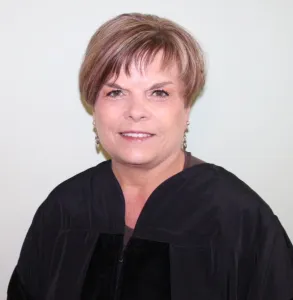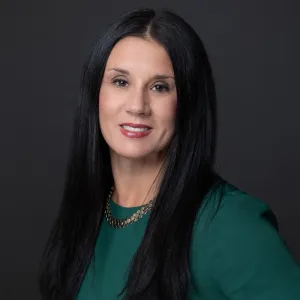Podcast: An Interview with Leaders from Georgia’s Council of Accountability Court Judges
Justice Speaks continues its series of interviews with State Treatment Court Associations’ leaders and State Treatment Court Coordinators by interviewing Chief Judge Brenda Weaver, Judge Charles Auslander, III, and Ms. Taylor Jones, the Executive Director of Georgia’s Council of Accountability Court Judges (CACJ).
Cheif Judge Brenda Weaver
Chief Judge Weaver was first appointed to the bench in 1996 and she was also elected to office that same year. She describes overseeing criminal cases and being frustrated that the only option she had for felony cases was state prison. She became interested in looking for alternatives to prison and she was aware of Treatments Courts that had begun in Florida. She also knew that several Treatment Courts were operating in Georgia, so in 2002, she started the first felony accountability court in her district. She later started a Family Treatment Court, and Mental Health Court and finally a Veterans Treatment Court. Chief Judge Weaver was responsible for pioneering the development of accountability courts in Georgia and she continues to preside over a Veterans and Drug Court to this day.
Judge Charles Auslander, III
Judge Auslander was initially a defense attorney. He describes representing a DUI client who was under consideration for a DUI Court program after a new arrest. He shared that because of his client’s severe drinking problem, multiple prior arrests, and general attitude he did not believe his client had any chance of succeeding in the program, so his client passed on it at that time. Several years later after being appointed to the bench, he had the opportunity to cover an Accountability Court in a colleague’s DUI program and he was surprised to see his former client in the program and doing very well. From there he “fell in love “with the concept of Accountability Courts..
Taylor Jones, Executive Director CACJ
Ms. Jones began her career in Accountability Courts as a probation officer in 2009. She spent some time as a surveillance officer in a Mental Health Court where she observed positive changes in some of the participants. After the Georgia legislature provided funding for the creation of the CACJ, she applied for, and she was appointed to the role of Executive Director of the Council.
An Interview with Leaders from Georgia’s Council of Accountability Court Judges


